There’s hardly a sports-racing team that doesn’t dream of taking home the coveted overall victory at Le Mans, such is the race’s fame and prestige. As such, I decided that I wanted to experience every minute of this year’s edition, to find out exactly where the fascination comes from. Naturally, I sought help along the way, by talking to Le Mans veterans, team bosses and motorsport fans in general. And to defy fatigue? An hourly intake of caffeine, from flag to flag.
Espressos one to six – the start
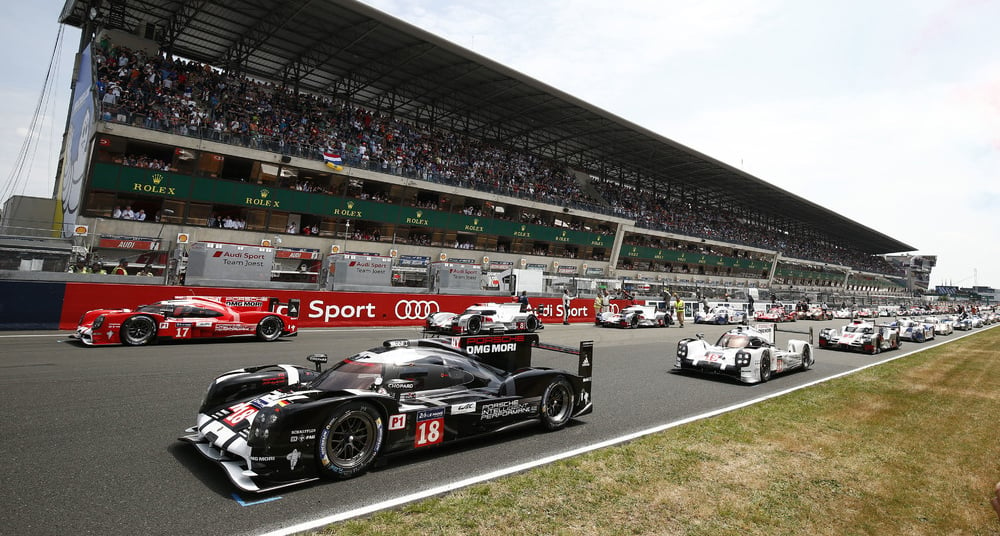
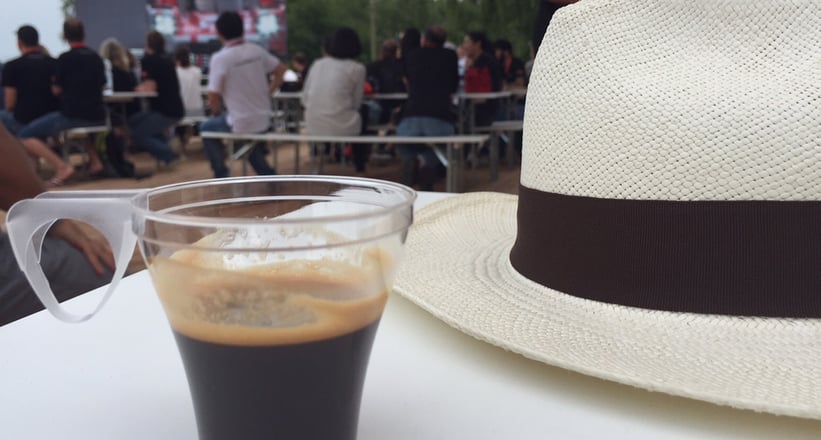
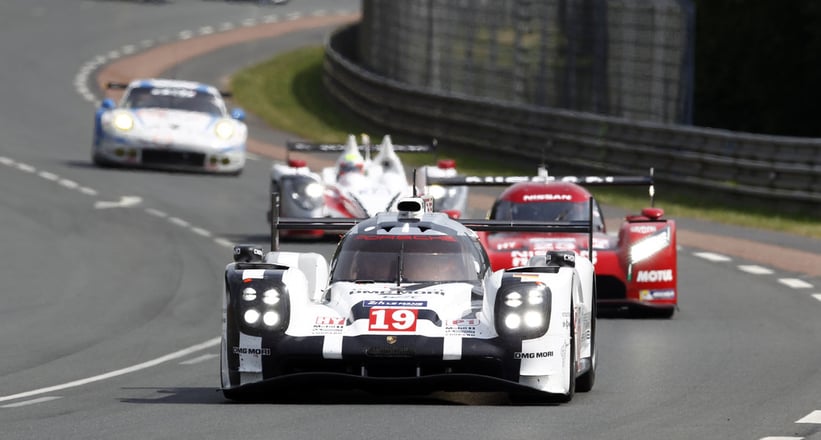
Friedrich Enzinger is a native Styrian, and seems surprisingly relaxed while I tell him of my plan to stay awake. Then again, he is the team manager of Porsche’s LMP1 programme, and probably has far more important things on his mind, like trying to win the team’s 17th overall victory at Le Mans. Porsche returned last year to the top flight after a 16-year absence. The race will soon be underway, so I ask how he’s feeling. “I’m very excited. A little nervous, but I mustn’t show this to my team.” And what will he drink to stay awake? “I am Styrian, and drink only water,” he says with a smirk, before disappearing into his box.
I’m faced with a huge trailer with four big antennae protruding from the roof, up into the sky. “Pretty impressive, huh?” asks a young man, dressed in Porsche Motorsport apparel. “Do you want to have a look around?” I nod, and follow the chap, whose name is Sebastian, up into a room above the trailer. Fortunately, coffee is served – hour three’s cup seems like an age ago, so hour four’s is a welcome treat. The vast bank of screens, flashing red and green, suggest that this is where the team’s live data is recorded. “These help to detect errors on the cars in the early stages of the race,” says Sebastian. Another coffee down and without wanting to disrupt the man any longer, I get on my way just as 919 Hybrid #19 surges into the pits.
The first crash... between cups seven and eight
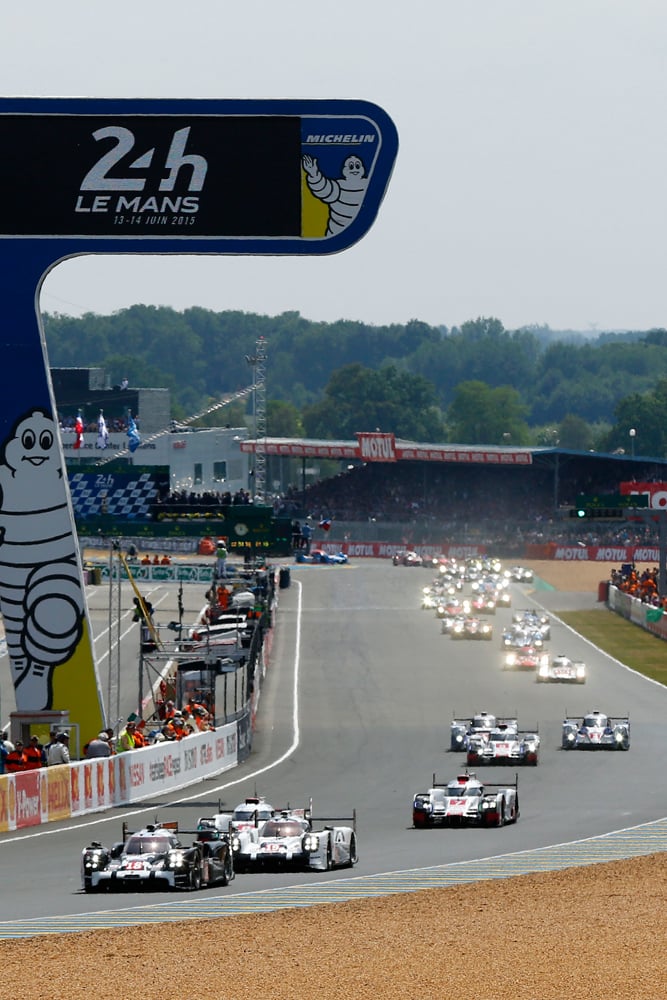
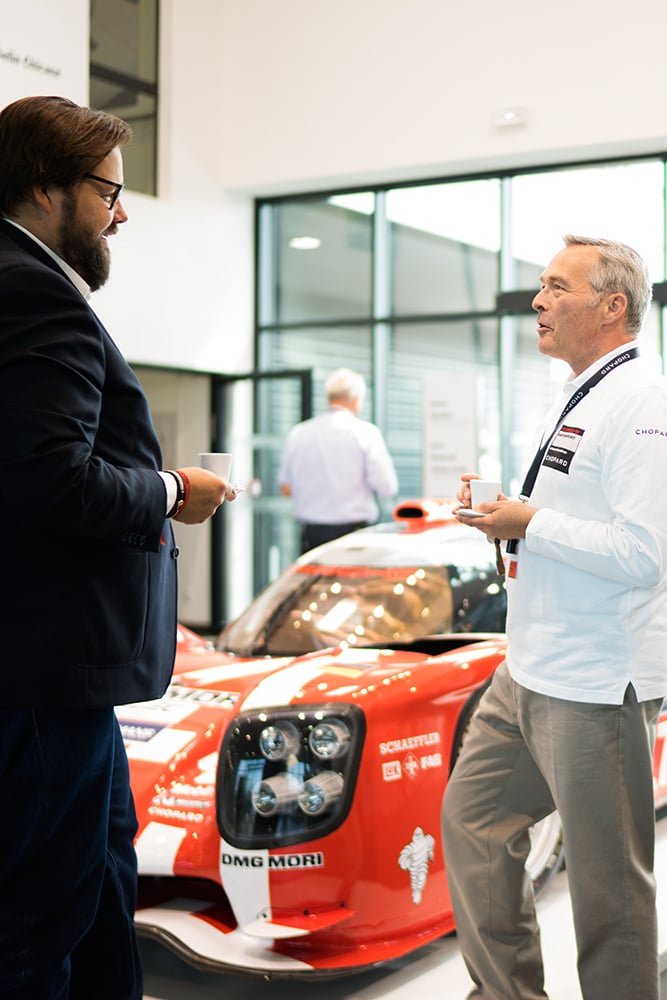
Tirelessly, the cars contest lap after lap, as the sun slowly sets below the Porsche Curves, shrouding the asphalt in darkness. Suddenly there’s a scare on the track: a Porsche GTE car spins and catches fire, the driver quickly extracting himself from the inferno, thankfully unscathed.
While ordering my ninth espresso, I begin chatting to an English motorsport enthusiast. “Forget Silverstone or the Nürburgring," he says; “Le Mans is the best race in the world for me. The atmosphere is unique, and no other race really separates the wheat from the chaff like this one.” Upon leaving, he issues me with some important advice: “gin is a far better substitute for coffee, and the best help against fatigue.”
Pit stop on the 12th cup
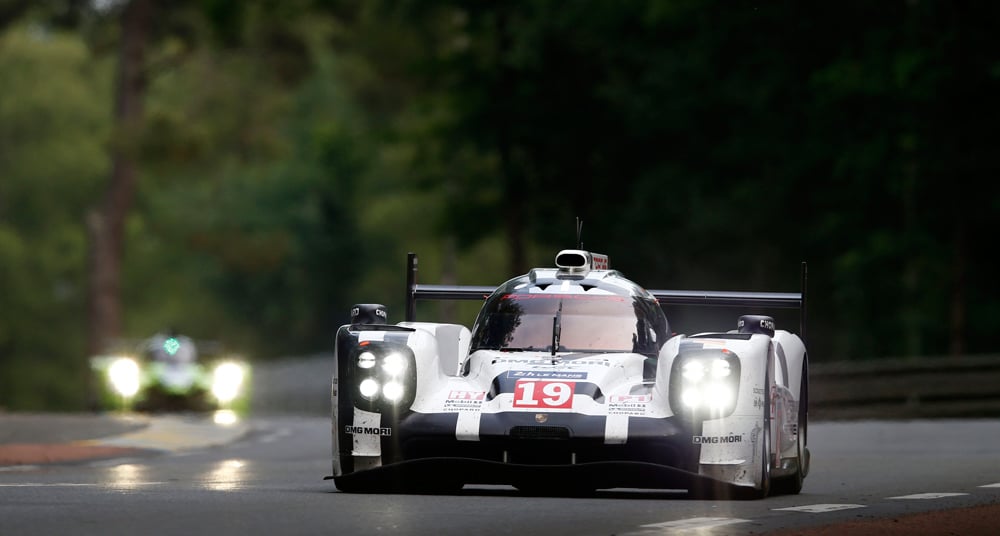
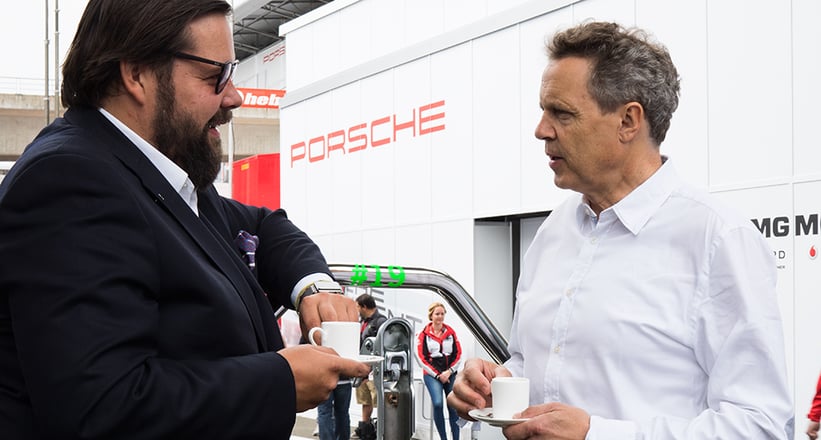
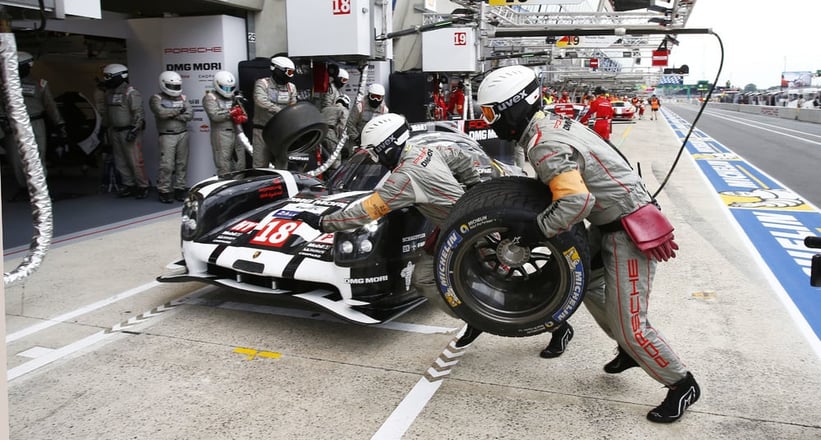
It’s three o’clock in the morning, and just half of the race is complete. I wonder how the drivers of each car can withstand the physical and mental strain Le Mans presents. Even with an abundance of caffeine in my system, it’s the constant, enchanting action on the track that’s really keeping me awake.
In the paddock I meet with Klaus Bischoff, a Porsche motorsport veteran. As a race engineer, the Swabian was heavily involved during the glory days of the 1970s and 80s. Among the hustle and bustle, we order a coffee in the hallowed halls of the Porsche LMP1 box. Bischoff explains to me how, as a boy, he used to wait for hours on a highway bridge near his home in Asperg for a Porsche 550 Spyder to howl past on a test-drive. “From then on I knew that I wanted to work on this race car,” he says. For Bischoff, the most important Le Mans of them all was in 1971. “I was one of two mechanics taking care of 917k number 22, the car in which Helmut Marko and Gijs van Lennep won the race. A victory at La Sarthe for any mechanic is a formative event for his whole life.” I’m beginning to understand the mystique and allure of this 13.5km circuit.
Obsolete caffeine
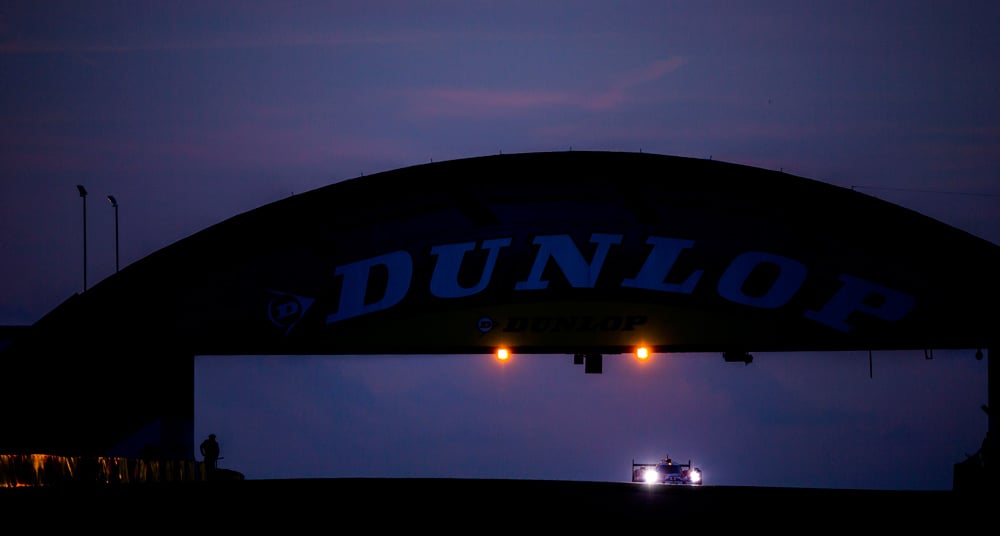
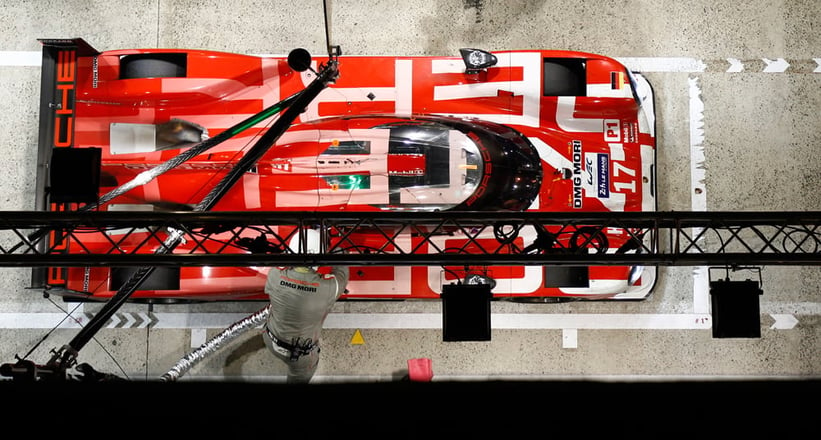

Another six coffees down and I find myself in the Porsche team tent, trying not to nod off in front of the television monitors broadcasting the race. It’s time for another cup, and while I hunt, I speak to the grandson of Porsche’s founder, Ferdinand Porsche. Wolfgang Porsche first visited Le Mans when he was a young boy. “I must have been 10 or 11,” he says. “At my first Le Mans I wanted to stay awake for the whole race, too. When I was tired and weary, my mother would advise me to lie down for 10 minutes. So that’s what I would do, but, given how tired I was, I would end up sleeping for half an hour, and wake up incredibly annoyed at myself.” That’s a feeling I understand only too well.
The last laps and the last cups of coffee
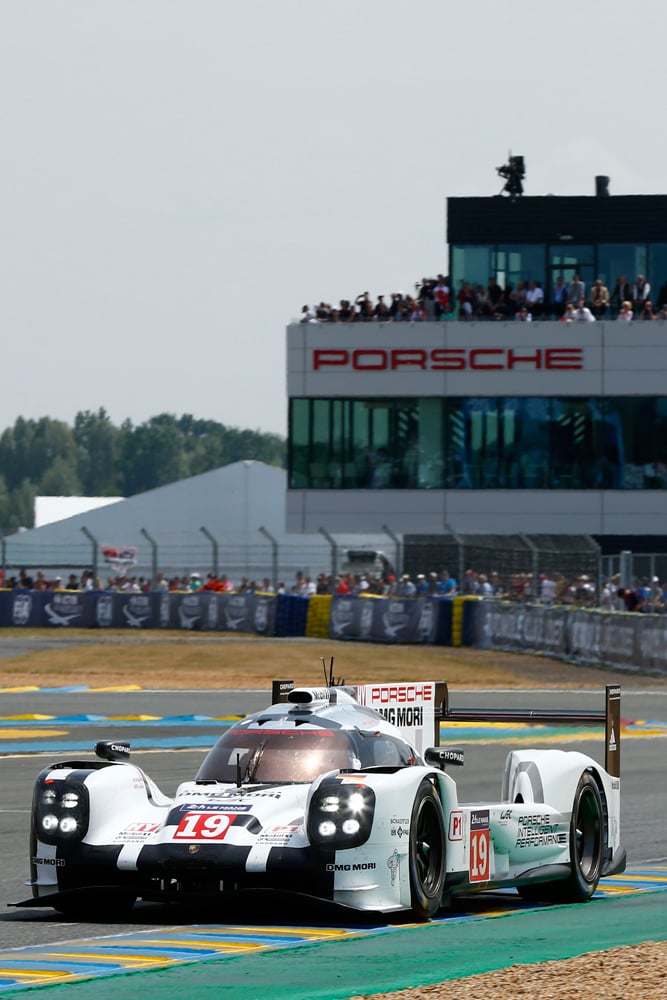
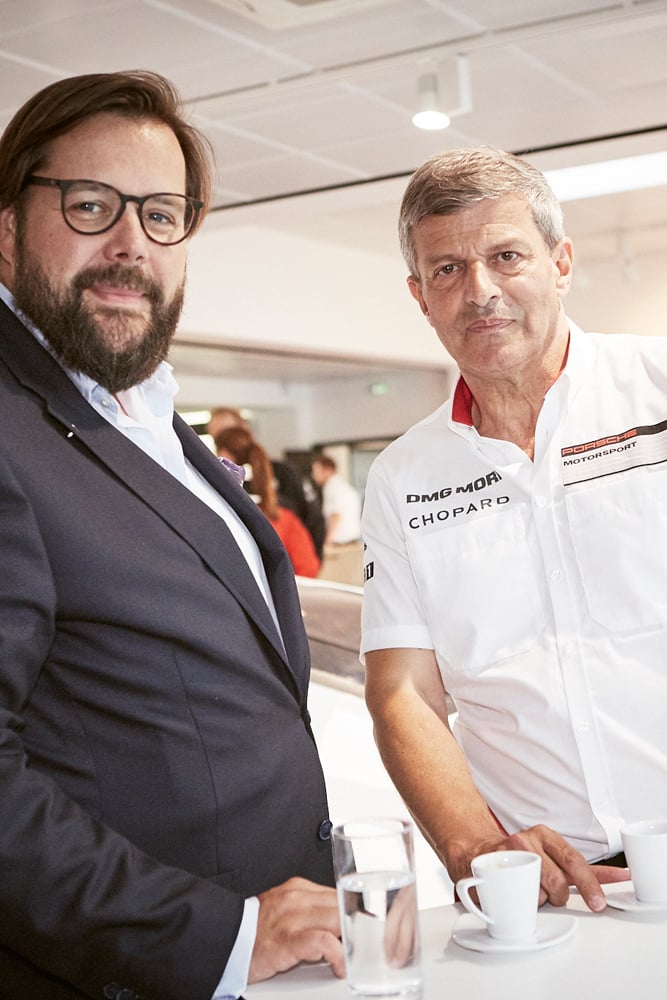
At a famous and historic race such as the 24 Hours of Le Mans, it’s almost impossible not to run into a racing legend along the way. Take Jacky Ickx, for example, the six-times Le Mans winner and veteran of many disciplines of motorsport. He’s with his daughter, Vanina Ickx. I ask them both what they remember of their first Le Mans experiences. “I can’t really answer,” says Vanina. “I knew that there was some awfully long race in France, but I probably only really took note when my father raced here for the final time in 1985”. Jacky laughs, adding “I only knew of Le Mans when I started racing here. Before it did not play a role in my life, and I never dreamt of driving in the race.” In any case, a win at Le Mans is definitely the basic ingredient of a racing legend. “As a racing driver, you aimed to win at Le Mans, Monaco and Indianapolis,” says Jacky. Quite.
24 coffees; 17 victories
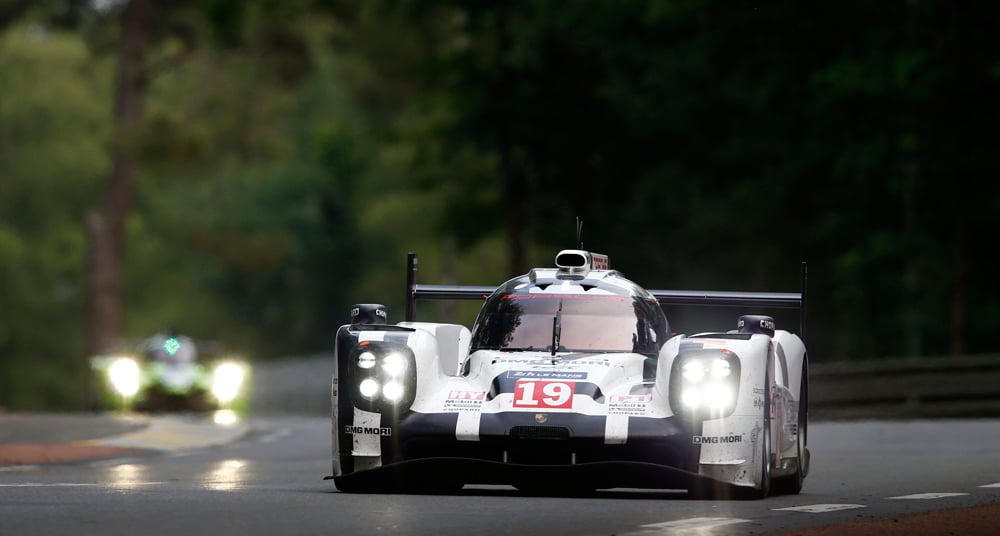
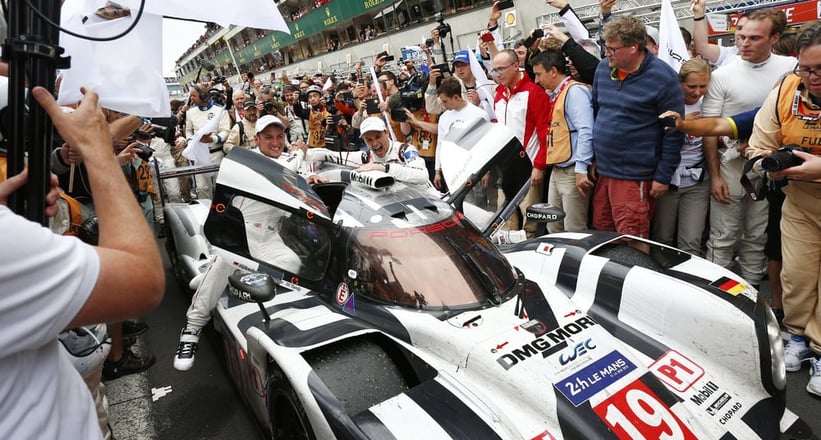
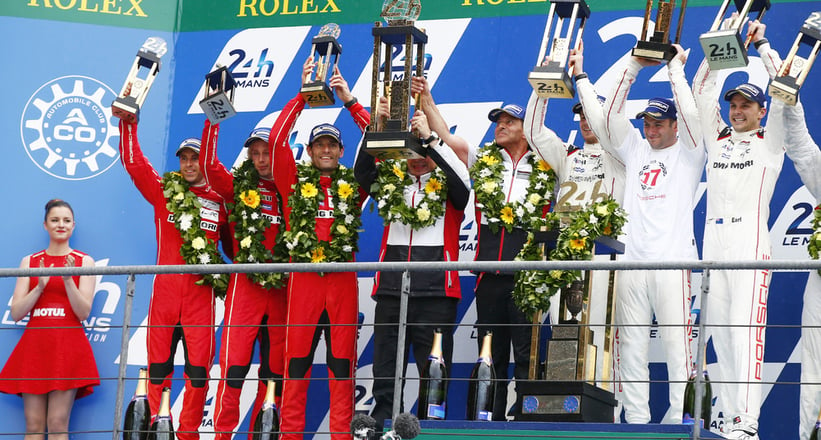
The race enters the final two hours. More and more people filter into the Porsche tent, because two 919 Hybrids occupy first and second positions on the track, followed by the strongest of the three Audis. Armed with a cup of coffee, stood next to me is Karl-Friedrich Scheufele, the president of the watch brand Chopard, which has sponsored the LMP1 programme since its inception. “For me, this race is legendary,” he says. “So many big names of motorsport have taken the start here, and as a young boy I was completely fascinated with Le Mans. It’s simply wonderful.” Also present is the president and CEO of Bugatti and Bentley, Wolfgang Dürheimer, who shares the passion for the race. “You know, as a child, my bedroom walls were plastered with posters of my heroes such as Jacky Ickx and Derek Bell,” he says. So will we see Bentley make a return to Le Mans? Dürheimer smiles, without comment. We will see…
The two Porsches lead the field, followed closely by the Audi. The tension is high, as everyone’s eyes are trained on the monitor following Nico Hulkenberg as he guides his 919 Hybrid to the finish. And then the dreams of many of those I have spoken to in the last 24 hours become a reality – Porsche wins Le Mans for the 17th time. The rapture is enormous. For me, it’s time for my 24th and final cup of coffee. As I order, I get a tap on the shoulder from Friedrich Enzinger. I congratulate him, and we drink our last cups of coffee, before the victory celebration lasts well into the night.
Photos: Porsche, Jörn Kengelbach





























































